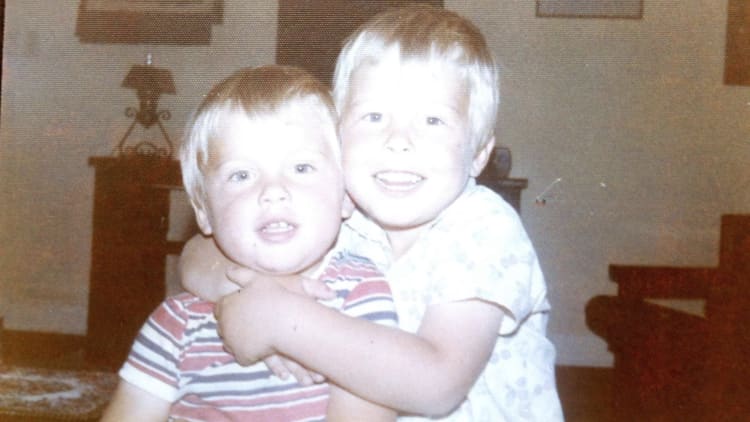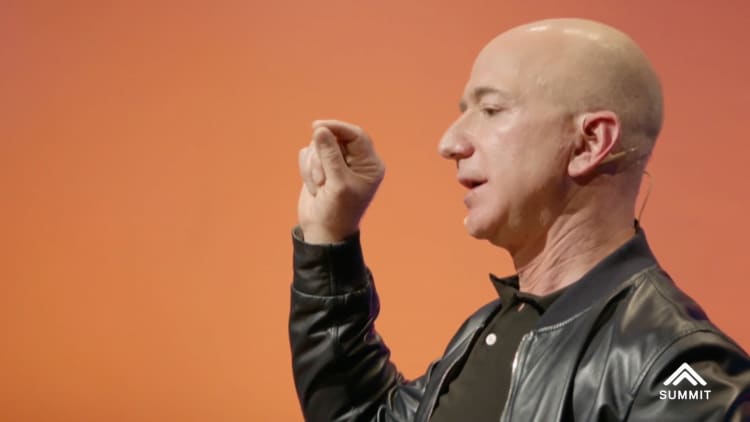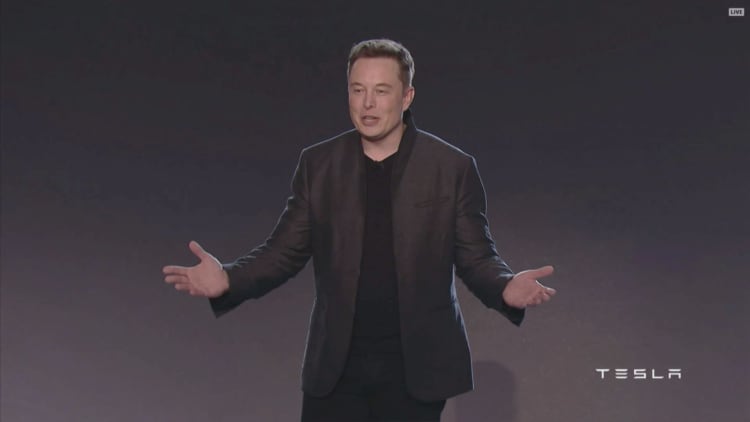You need more than intelligence and money to be highly successful. In fact, these two components make up just a small fraction of success, according to entrepreneur Jim Cantrell, who was part of billionaire Elon Musk's SpaceX founding team.
In a Quora post that was first published on Forbes, Cantrell writes, "Intelligence is more of a tool that enables you to be successful rather than an ingredient itself."
Today, SpaceX is set to launch a rocket that, if successful, will carry Musk's cherry red Tesla Roadster to space.
"If we are successful in this, it is game over for all the other heavy lift rockets," Musk said Monday evening on a press call, reports Business Insider.
Through Cantrell's years of experience advising billionaires and tech companies, and his extensive work with Musk, he has seen what works and what doesn't work on the road to success.
Success, Cantrell writes, relies on a "single simple formula" that is based on three things, which Bill Gates, Mark Cuban and Jeff Bezos seem to agree on as well:
1. Passion
Cantrell says to do what you're most passionate about in life. "Without passion, your work is not your love and you can never be your best or be better than others who are running with their passion," he writes.
Other highly successful people have said the same. In a Q&A with ABC.net, Microsoft co-founder Bill Gates says: "If you're lucky when you're very young, you find something you're passionate about. I did when I was 13 years old. I found computers and software."
This passion led him to create Microsoft, which is now valued at $507.5 billion and has made him the second richest person in the world with a net worth of $90.2 billion, according to Forbes.
2. Talent
"Do something that you are inherently good at or talented at," writes Cantrell. If you spend your life doing something difficult, which you're not particularly good at, it will put you at a disadvantage to more talented people within that same field, he explains.
Billionaire entrepreneur Mark Cuban has said something similar. In fact, he says, talent and effort are often what lead to passion. For Cuban, technology was his talent. When he received his first job out of college, he started to use technology and realized he had a real knack for it, he wrote on his blog in 2012.

He taught himself how to use the software program at his company and would go up to eight hours without taking a break because he was so invested in his work.
"That's when I realized that I can be really, really good at technology," notes the "Shark Tank" star.
He eventually launched the computer consulting service, MicroSolutions, which he sold to CompuServe in 1990 for $6 million.
"When you are good at something, passionate and work even harder to excel and be the best at it, good things happen," writes Cuban, who now has a net worth of $3.3 billion, according to Forbes.
3. Value
You could have the best idea in the world and be extremely enthusiastic about it, but if nobody wants it, then it's a dud, says Cantrell.
"Do something that creates value and can be sold into a market present or future," suggests the entrepreneur. Although creating a product or service can be "self satisfying," he writes, if nobody wants it, it won't "make you your fortune nor lead you to personal or professional success."
Amazon founder, and now the richest person in the world, Jeff Bezos prescribes to this theory. The retail giant was able to expand so quickly because Bezos offered a service that customers found valuable: a wide array of products on a convenient online platform.
When Amazon was first launched, it only sold books. Shortly after, the company added music and videos. Then Bezos reached out to customers to figure out what they really wanted to buy.
"The list came back incredibly long," Bezos tells Charlie Rose in a 2016 interview. But he listened to his consumers, giving them what they valued and were willing to pay for. This customer-obsession is now at the heart of the company's motto.

"We are always focused on the customer, working backwards from the customer's needs, developing new skills internally so that we can satisfy what we perceive to be future customer needs," Bezos tells Rose.
And it's clearly worked. Amazon is on track to become a $3 trillion company in a decade.
Cantrell emphasizes that in the list above, money and intelligence are not key factors. "If you combine these three elements into your pursuits in life," he writes, "you will be very successful and the money will come on its own."
Like this story? Like CNBC Make It on Facebook.
See also:
Tesla adding this CEO to its board is a big deal for Silicon Valley



